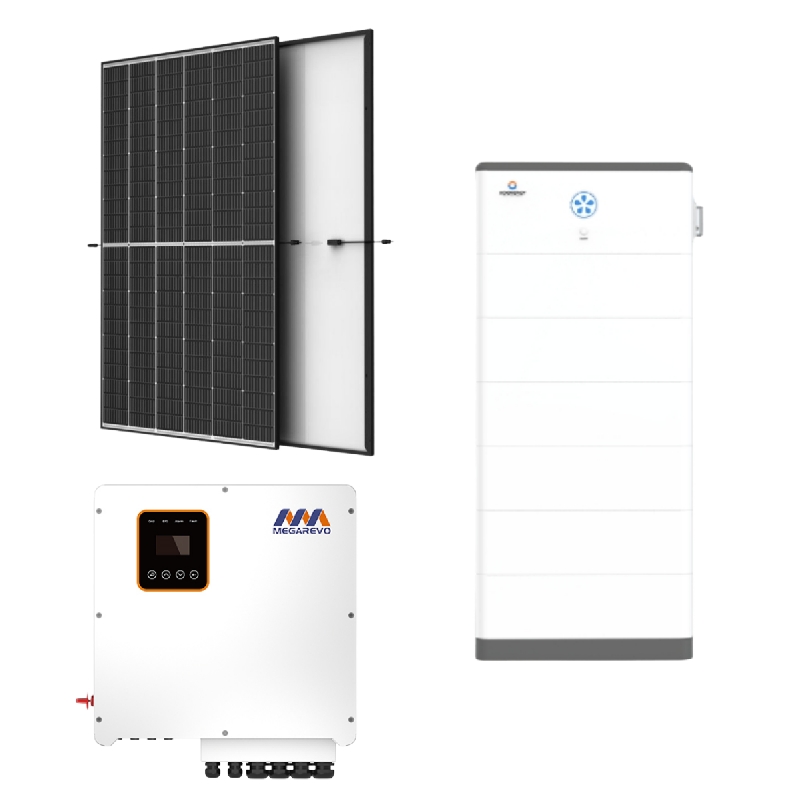-
 FAST SHIPPING
FAST SHIPPING
-
 COMPETITIVE PRICE
COMPETITIVE PRICE
-
 EXCELLENT AFTER-SERVICE
EXCELLENT AFTER-SERVICE
Solar Panel to Accumulator Ratio: Size PV and Batteries Right
Jan 23,2026How Many Solar Panels to Run an Air Conditioner? Sizing Guide
Jan 16,2026Illinois Solar Power Incentives: RECs, Rebates & Net Metering (2026)
Jan 09,2026Ohio Solar Energy Incentives (2026): Net Metering, Tax Rules
Jan 02,2026Disadvantages of Passive Solar Energy: Practical Limits & Fixes
Dec 26,2025Deploying Residential Photovoltaic Kits in remote and off-grid environments comes with a distinct set of challenges that require thoughtful system design, careful planning, and experience-backed engineering. Unlike urban or suburban installations, these systems must function independently of the grid, which means the photovoltaic kit must serve as a self-sufficient, always-available power source. This brings increased pressure on the reliability of components, especially batteries and inverters, which must be designed to handle variable loads and unpredictable environmental conditions.
In off-grid areas, solar resource availability can fluctuate significantly across seasons or even throughout the day due to cloud cover, terrain orientation, or shading from nearby vegetation. To mitigate these issues, precise solar resource mapping and system oversizing are often necessary. Proper sizing of both the photovoltaic panels and the battery bank ensures users maintain power during extended low-sunlight periods. Residential Photovoltaic Kits tailored for these situations often include intelligent controllers capable of prioritizing essential loads, reducing battery stress and increasing overall lifespan.
One frequently overlooked challenge in remote installations is temperature variability. Batteries, especially lithium-based types commonly used in modern photovoltaic kits, are sensitive to both high and low extremes. Without proper thermal management, performance can drop significantly or, worse, batteries can degrade prematurely. As experienced manufacturers, we recommend solutions such as insulated enclosures or active cooling/heating modules where appropriate. These elements are critical in ensuring stable operation over time, especially in desert or alpine regions.

Maintenance access is another point of concern. In grid-connected urban areas, system checks and repairs are relatively straightforward. But in remote locations, travel time and lack of local technical support can delay essential maintenance. That’s why our Residential Photovoltaic Kits come integrated with robust remote monitoring systems that allow users or service teams to track system health, performance metrics, and potential faults in real time, minimizing unnecessary site visits and ensuring uptime is maximized.
Energy consumption habits also differ in off-grid environments, with many users being more conscious of usage patterns to match solar production cycles. The best approach is to implement smart energy management within the kit design—balancing charging priorities, running heavy loads during peak sun hours, and intelligently scheduling backup generator activation if needed. This level of sophistication helps users gain true energy independence while optimizing the performance of their solar investment.
Furthermore, logistical challenges like transportation and installation must be considered. Components may need to be delivered over difficult terrain and set up in locations without cranes or conventional mounting infrastructure. Our kits are designed with these realities in mind, using preconfigured modular components that reduce on-site assembly complexity and ensure smoother deployments even in hard-to-reach areas.
With a decade of experience in manufacturing and supplying energy systems across varied geographies, we understand the unique technical demands of remote installations. Our Residential Photovoltaic Kits aren’t just built to deliver energy—they’re engineered to deliver confidence in the most demanding conditions. When reliability, autonomy, and intelligent design matter, we offer more than just a product—we provide a complete energy solution.
←
Grid-Tie Solar Inverters: A Comprehensive Guide to On-Grid Solar Power
→
Navigating EU Regulations for Solar Storage Battery Systems: A Guide for Installers and End-Users
 +31610999937
+31610999937 [email protected]
[email protected] De Werf 11, 2544 EH The Hague, The Nederland.
De Werf 11, 2544 EH The Hague, The Nederland. WhatsApp: +1 (917) 257 2995/
WhatsApp: +1 (917) 257 2995/Copyright © 2023 Uni Z International B.V. VAT: NL864303440B01 All Rights Reserved
